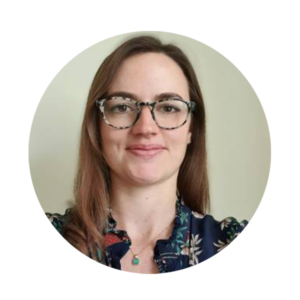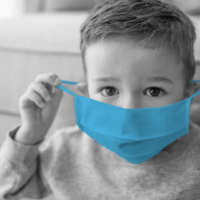This free webinar is open to all, and is organised by ACAMH’s Adverse Childhood Experiences (ACEs) Special Interest Group Monthly seminars. In this session we welcome Dr. Jeanne Wolstencroft, Research Fellow at the Great Ormond Street UCL Population, Policy and Practice Dept. will present findings from The IMAGINE—ID consortium.
Booking
Sign up to this FREE webinar at this link or on the Book Now button at the top of the screen, and complete the form that follows. You’ll then receive an email confirmation and a link to the webinar, plus we’ll send you a calendar reminder nearer the time.
- ACAMH Members attending will be eligible for a FREE electronic CPD certificate. Members MUST login to book onto the webinar and get their certificate.
- Non-members can opt to receive an electronic CPD certificate for just £5, select this option at the point of booking. This is a great time to join ACAMH, take a look at what we have to offer
- PLEASE NOTE: You cannot book onto this event after the event has started on 28 March 17:00 UK time
Don’t forget as a charity any surplus made is reinvested back as we work to our vision of ‘Sharing best evidence, improving practice’, and our mission to ‘Improve the mental health and wellbeing of young people aged 0-25’.
About the session
The Imagine ID Consortium (‘The Intellectual Disability and Mental Health – Assessing the Genomic Impact on Neuro Development) has recruited children with Intellectual and Developmental Disabilities (IDD) of identified genetic aetiology from across the UK. The COVID-19 pandemic posed unique challenges to this cohort in two respects. First, children with IDD have high levels of pre-existing health conditions and so may be considered especially vulnerable to the virus. As a result, families of these children were more likely than the general population to have been shielding, following UK government advice. Second, children with IDD are more likely to make use of services (such as specialist education, healthcare and social care) which were suspended or diminished during the pandemic.
In ‘normal times’, children with IDD are at increased risk of behavioural difficulties compared with typically developing children. Families of a child with IDD are more likely to live in deprived socioeconomic circumstances and experience increased parenting stress or parental psychological distress than typically developing children. Early reports of the impact of the pandemic on children with IDD and their parents suggest that many were feeling overwhelmed, forgotten, and had experienced high levels of anxiety and depression.
Overall, the parents displayed great resilience, but this often came at the detriment of their own mental health and well-being. Where children needed high levels of personal care, parents often felt overwhelmed and unsupported, unable to access the respite care or specialised support they normally received. Many described high levels of distress and being close to burn-out.
Regular check-ins with services and schools were described as very helpful, a novel insight that had not, to the team’s knowledge, been reported in previous research. A 5 min telephone call with each family once a week may be more effective than 2 hours working with the entire class, for children with special educational needs. Many parents felt let down and forgotten by medical and school services and felt isolated from the rest of the country.
Most families were able to draw some positives from the pandemic, as they were able to enjoy spending more time together. The impact of the pandemic on children’s behaviour varied substantially. Some parents reported an increase in behavioural outbursts, while others explained that spending more time at home had led to a decrease in stress due to less demands on social interaction. Several parents reporting that behavioural challenges their children had previously outgrown re-emerged because of changes in routines and lack of support. Where parents were able to introduce new routines, this seemed to benefit children, particularly when these routines allowed children more time at home doing activities they enjoyed.
About the speaker

After studying for a BSc in neuroscience, Jeanne worked for an online start up in the arts sector. She returned to academia to complete an MSc in Psychology after which she joined the Great Ormond Street UCL Institute of Child Health to complete her PhD and work on the national IMAGINE- ID study. Her PhD piloted an online delivery of social skills training for girls with Turners syndrome. Jeanne’s research interests are focused on understanding the impact of co-occurring mental health difficulties in children and young people with neurodevelopmental disorders and/or rare genetic disorders, and digital approaches to psychosocial intervention. Jeanne is a co-investigator on the Children’s Autism Technology Assisted Assessments (CHATA) project which aims to digitise autism assessment procedures for families from diverse ethnic backgrounds. She has also received a Child Mental Health Research Strategic Grant to co-produce a digital mental health intervention for children with rare genetic disorders and irritability.
Booking
Sign up to this FREE webinar at this link or on the Book Now button at the top of the screen, and complete the form that follows. You’ll then receive an email confirmation and a link to the webinar, plus we’ll send you a calendar reminder nearer the time.
- ACAMH Members attending will be eligible for a FREE electronic CPD certificate. Members MUST login to book onto the webinar and get their certificate.
- Non-members can opt to receive an electronic CPD certificate for just £5, select this option at the point of booking. This is a great time to join ACAMH, take a look at what we have to offer
- PLEASE NOTE: You cannot book onto this event after the event has started on 28 March 17:00 UK time
Don’t forget as a charity any surplus made is reinvested back as we work to our vision of ‘Sharing best evidence, improving practice’, and our mission to ‘Improve the mental health and wellbeing of young people aged 0-25’.


